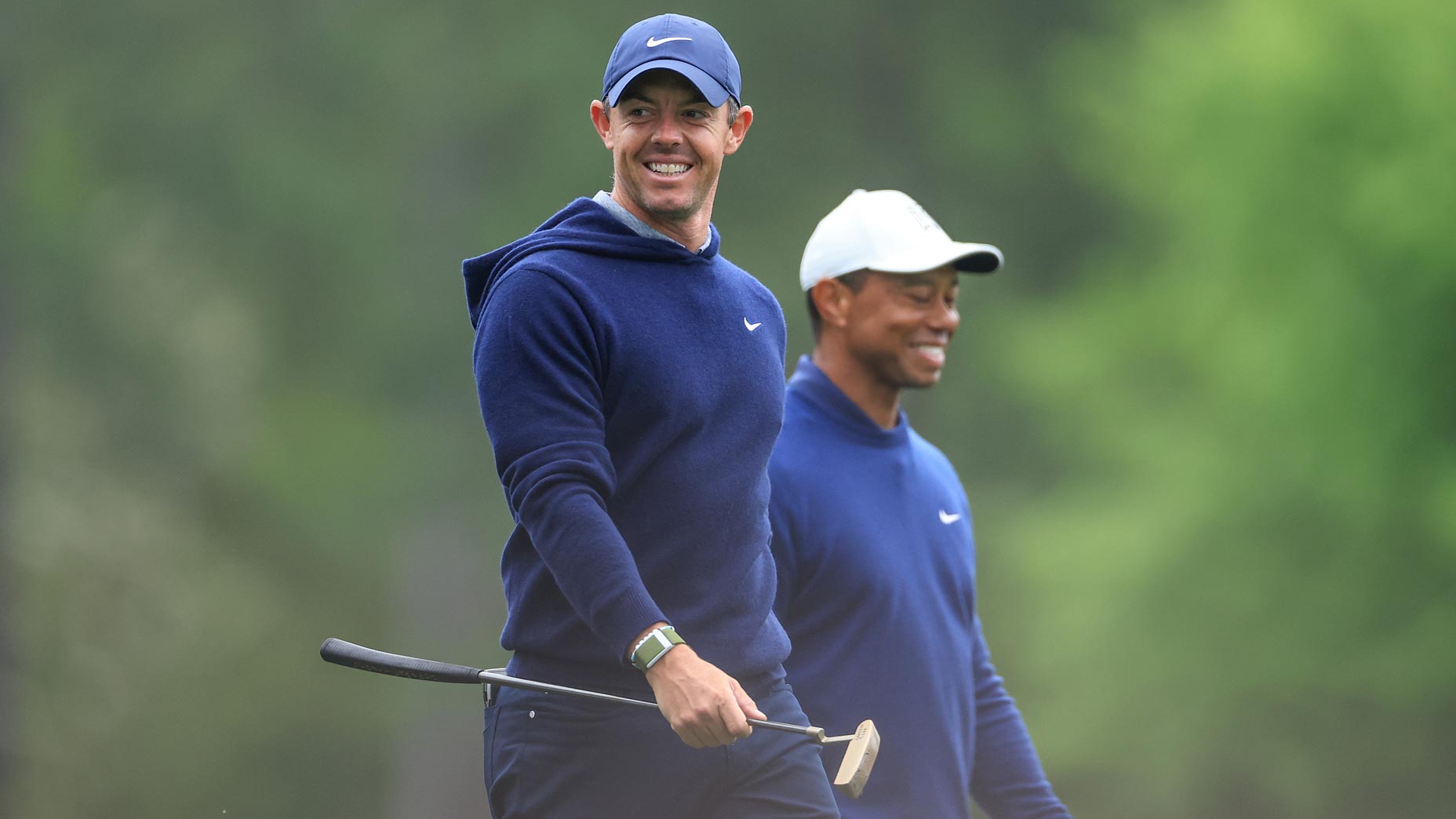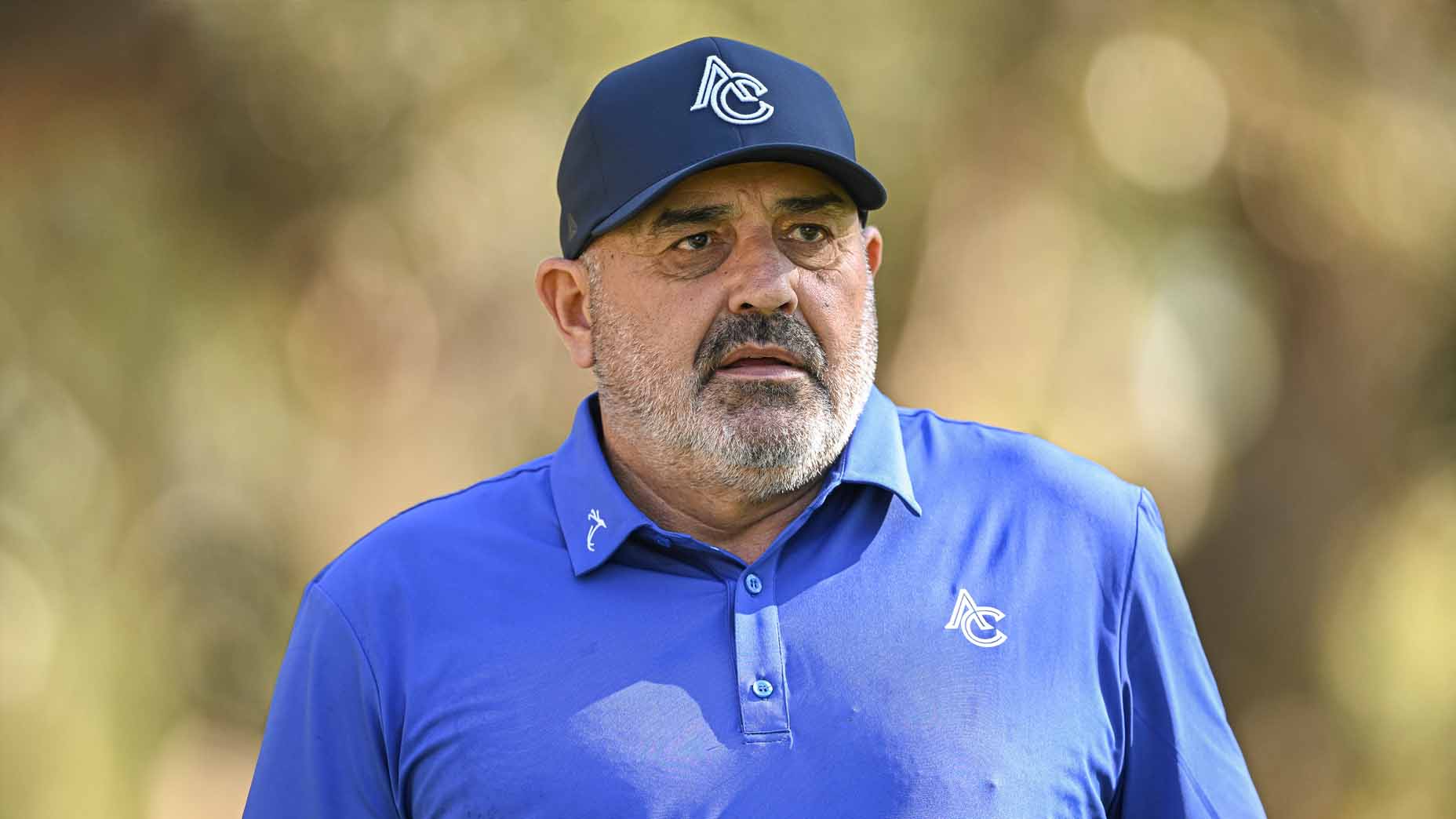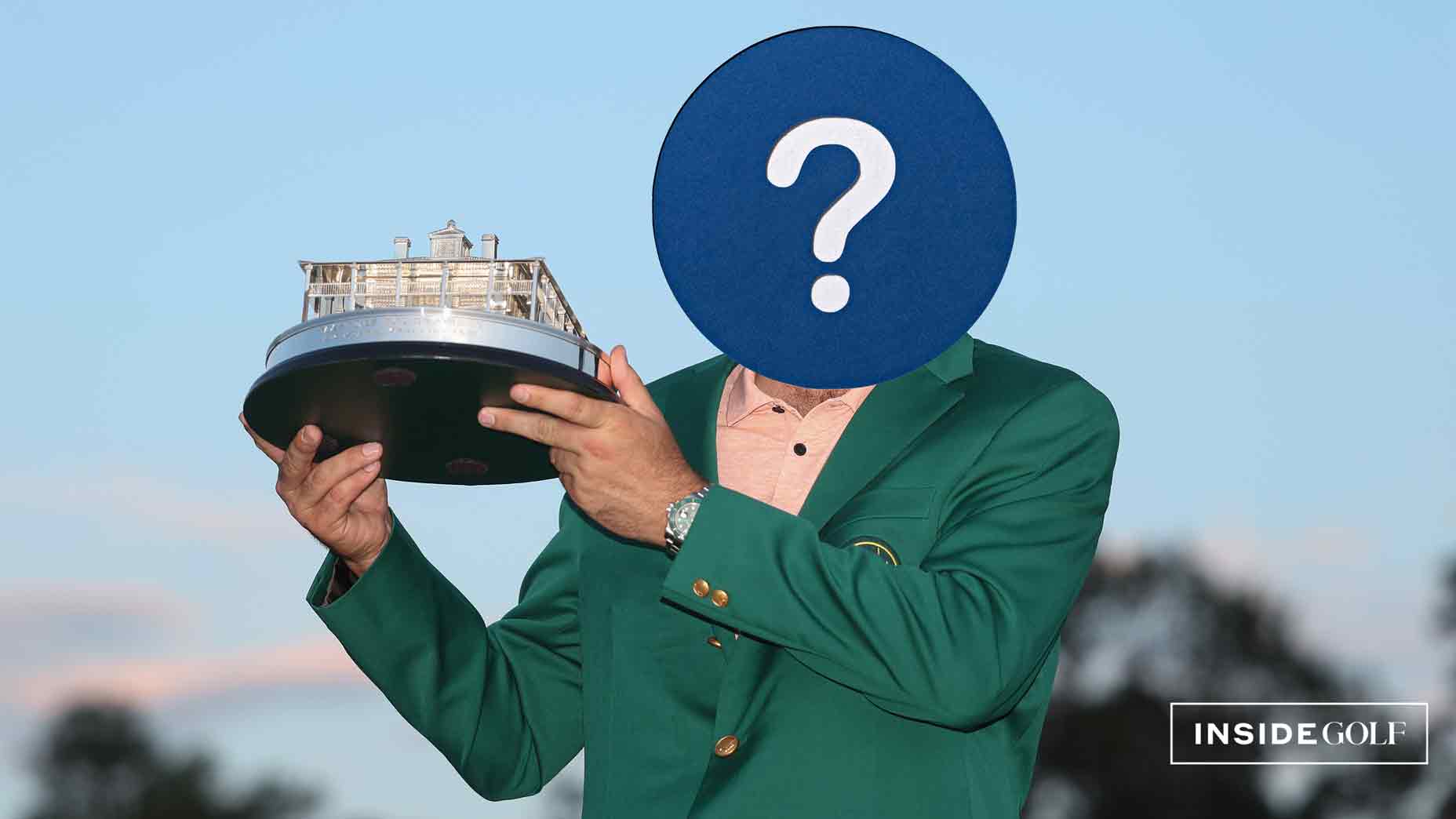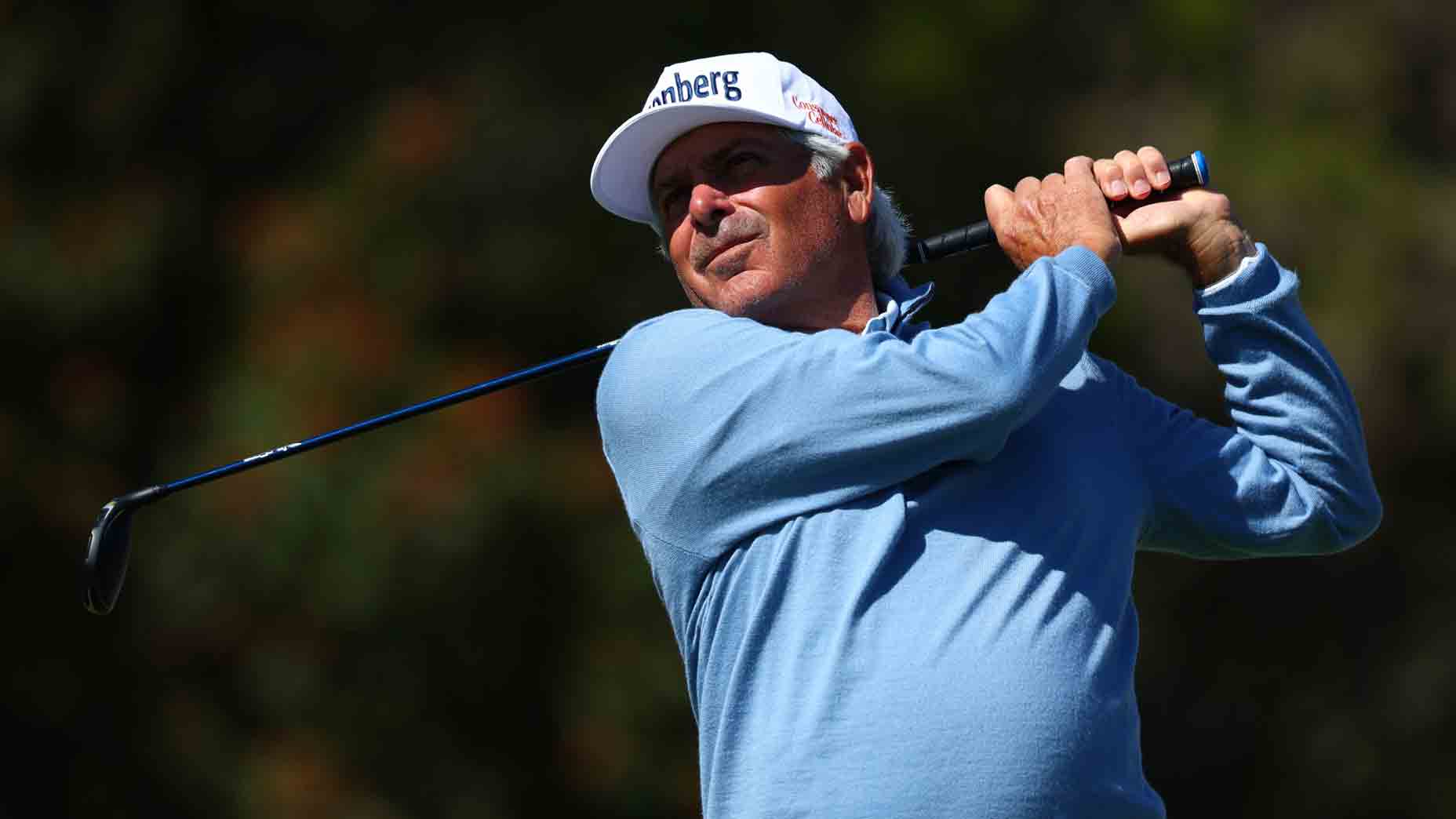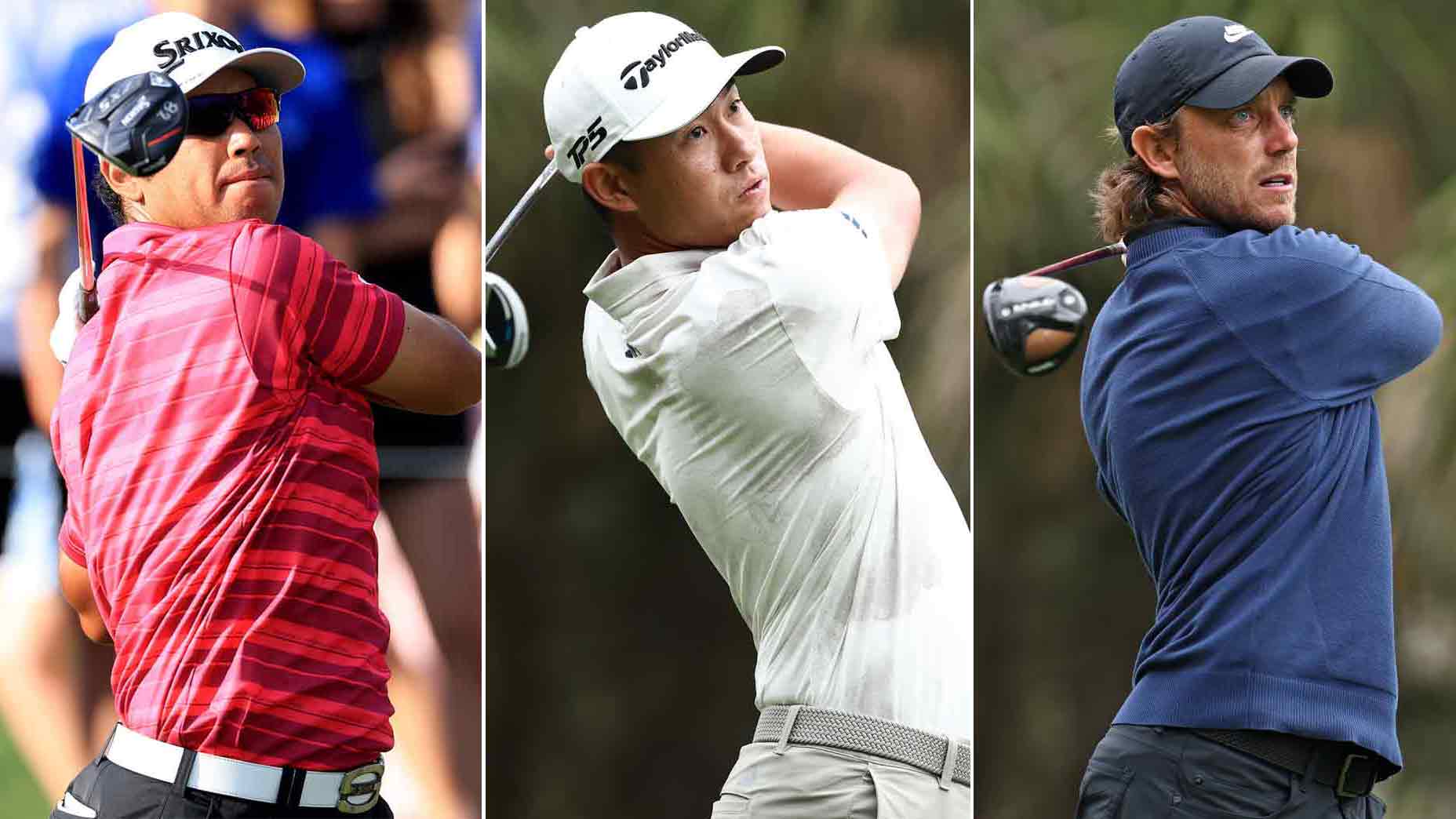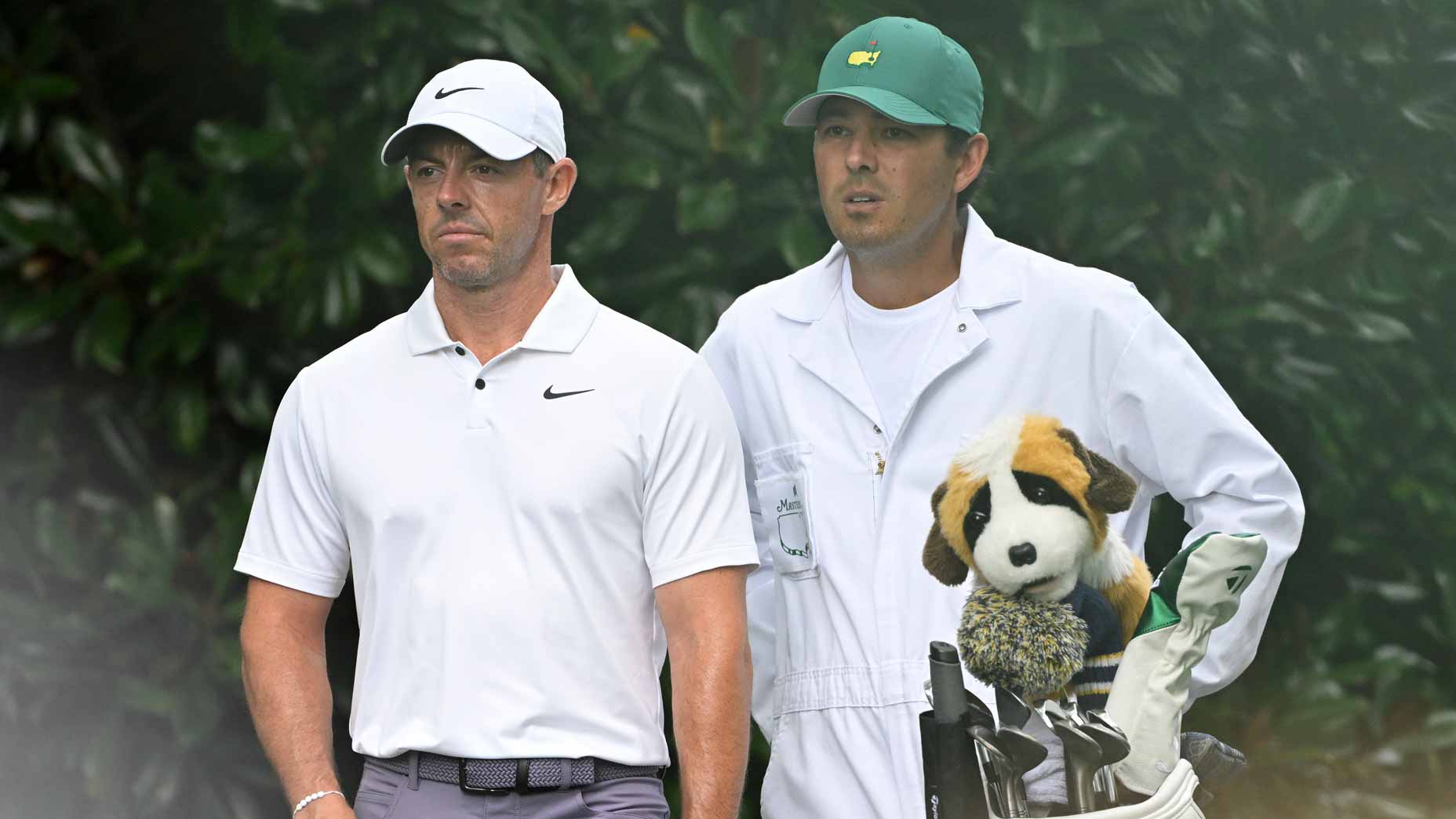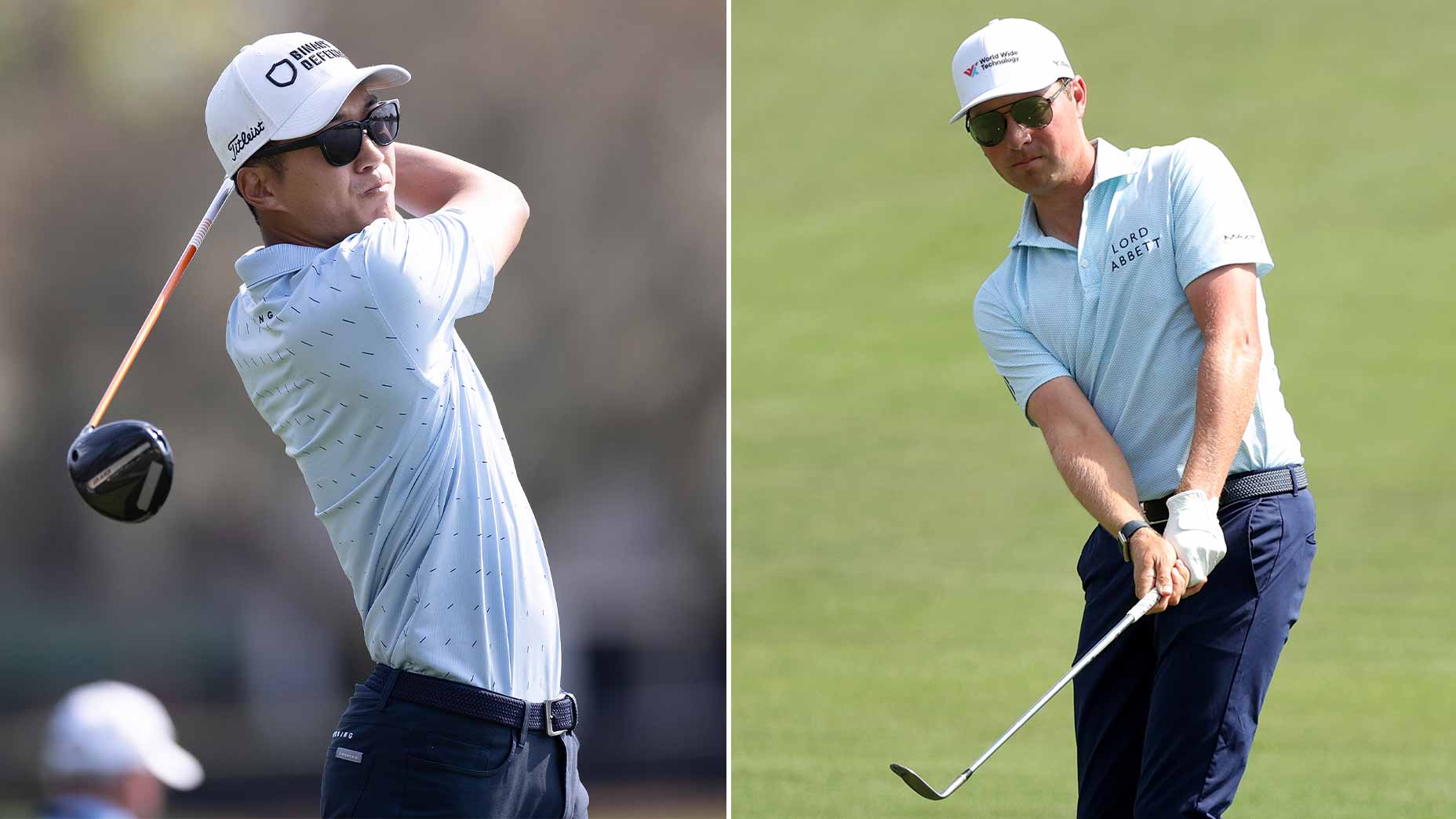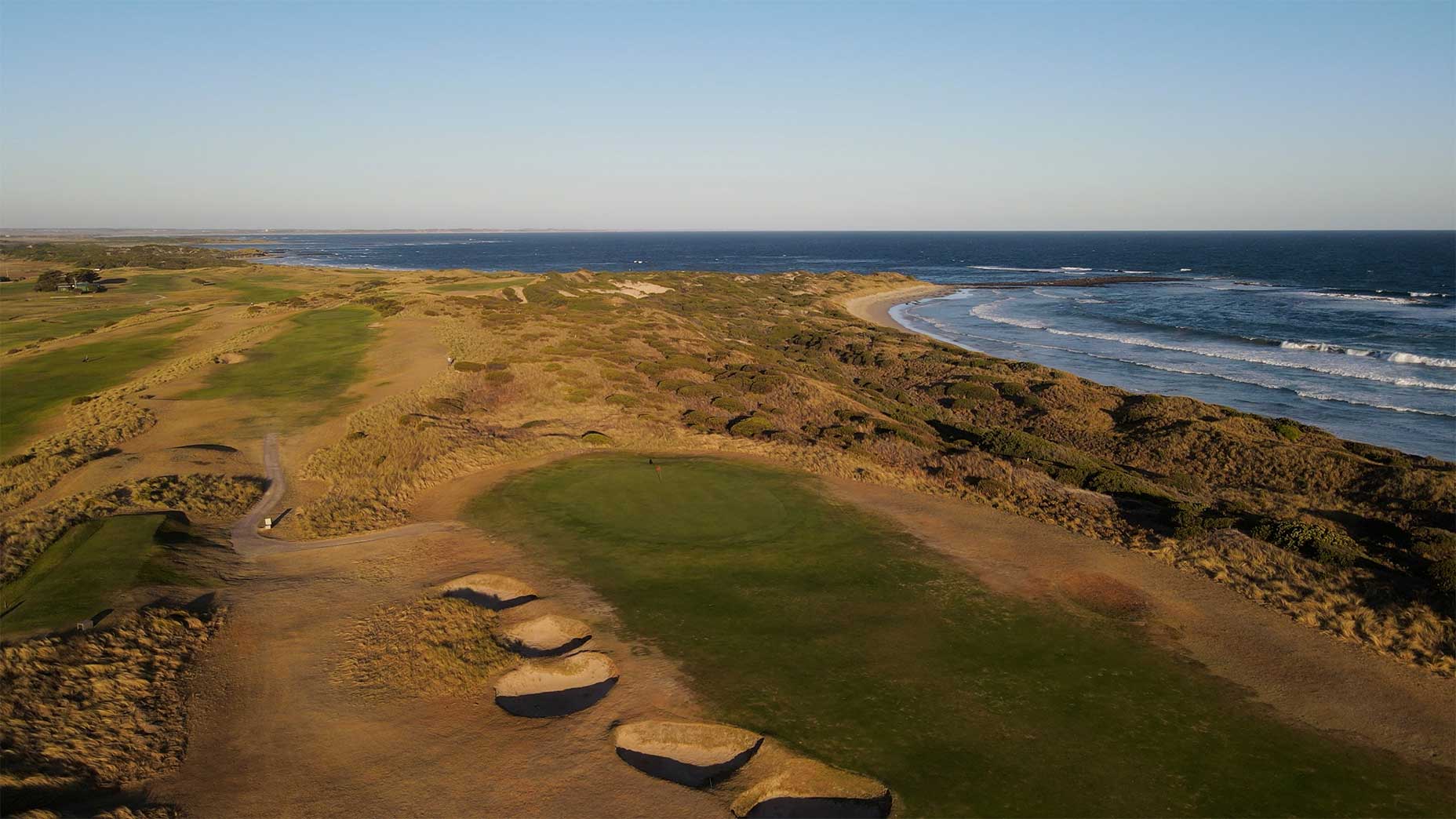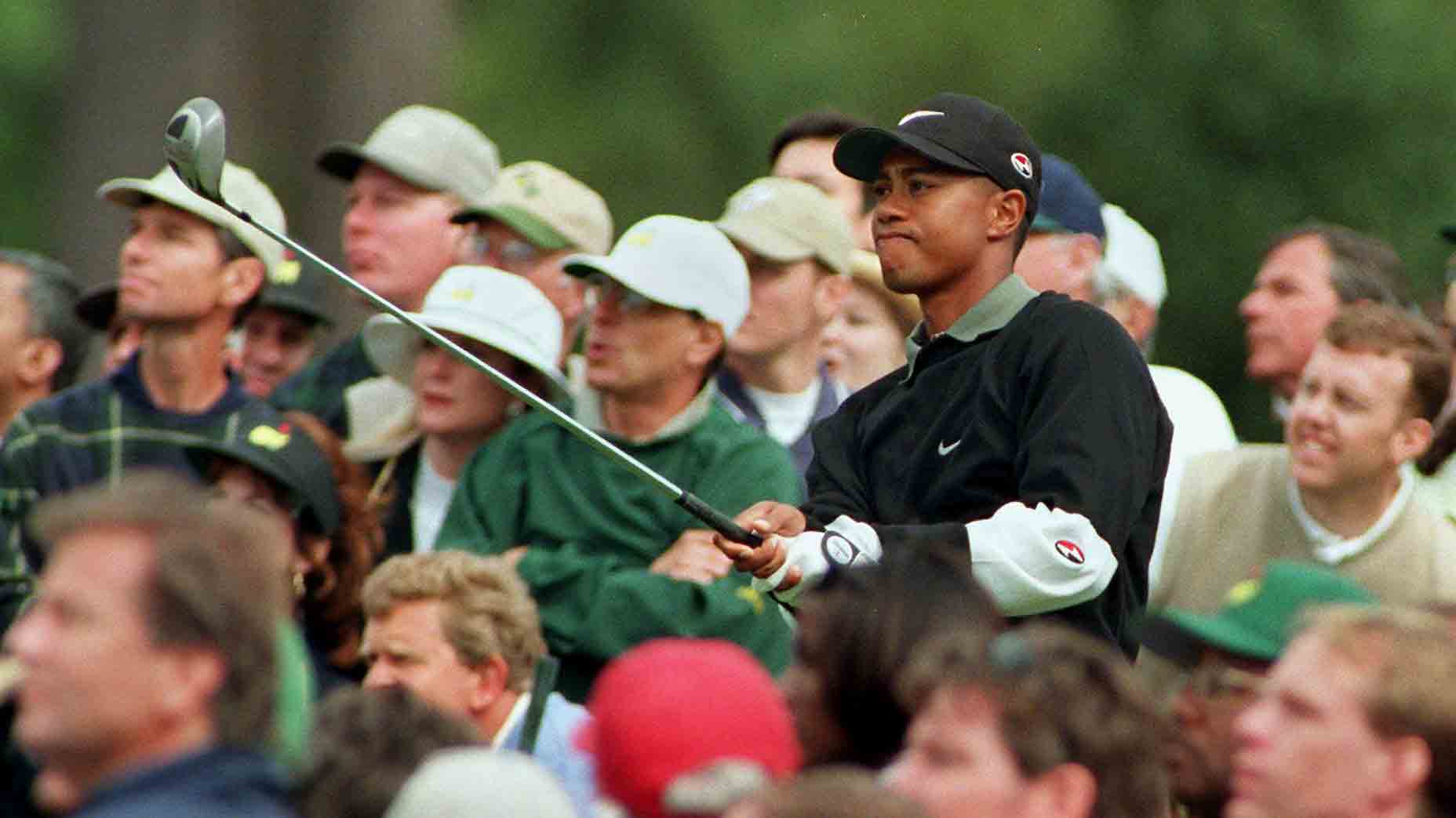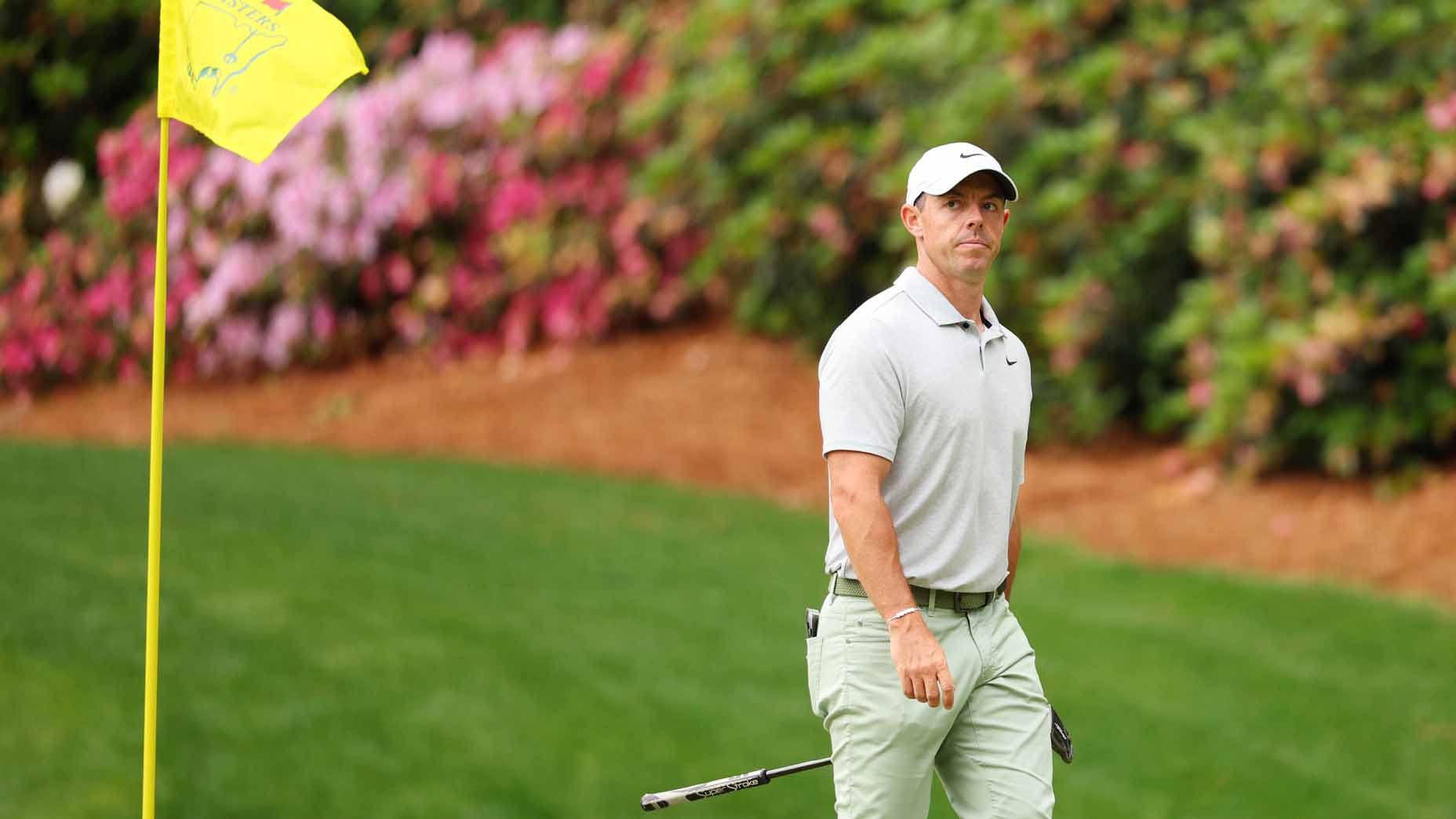2 Masters sleepers are hiding out in the open at Augusta National
- Share on Facebook
- Share on Twitter
- Share by Email
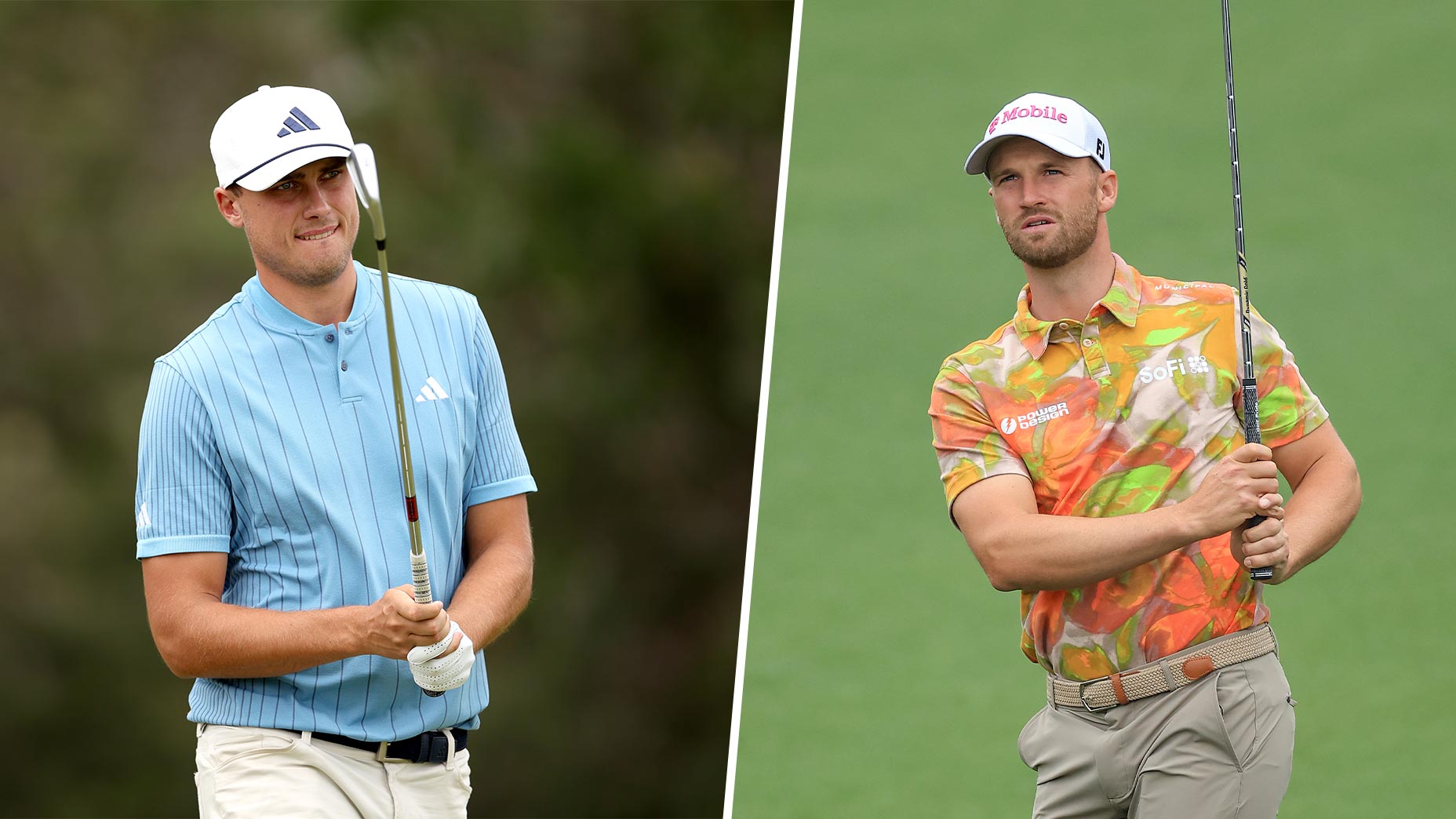
A Masters rookie hasn't won in close to 50 years, but Wyndham Clark (right) and Ludvig Aberg (left) could be in line to change that.
Getty Images
AUGUSTA, Ga. — It’s hard being the new guy.
At the Masters, Ludvig Aberg knows. He’s new. Brand-new. Not only to Augusta National, where he’ll play this week in his first-ever Masters — but also to all of major championship golf.
It’s easy to forget that Aberg’s career number of major starts is zero. Most players of his caliber have major championship peach fuzz by the time they’ve reached their early 20s, usually by way of amateur championship victories or special exemptions. Aberg is not one of them. He played valiantly as an all-world youngster at Texas Tech, a player talented and decorated enough to earn an invitation onto the PGA Tour straight out of school. He contended regularly and even won as a Tour rookie, then starred in the Ryder Cup in Rome as a particularly fearsome piece of a dominating European side. Now he’s the ninth-ranked player in the world and easily one of pro golf’s most gifted young’uns — talented enough to earn a Masters pre-tournament press conference before ever playing a tournament round.
That resume does not equate to zero major championship starts. But that’s where Aberg finds himself on Tuesday afternoon in Augusta — a Masters rookie on the brink of his first-ever major start.
Wyndham Clark knows the feeling. He wouldn’t have believed you if you’d told the reigning U.S. Open champ he’d win a major championship before he earned a start at Augusta. But the hardware on his mantel and the glimmer in his eyes Tuesday indicate otherwise.
Until about 11 months ago, Clark wasn’t on anybody’s pro golf radar. But then he broke through at the Wells Fargo for his first pro win, and then again, a month later, at the U.S. Open. And then again, eight months later, at Pebble Beach. Now, he’s entering the Masters as the fourth-ranked player in the world — and a Masters rookie on the brink of his first-ever start.
It would be a stretch to call these two golfers sleepers, what with their prodigious ability and history of tournament success. Vegas, which has both golfers among the tournament favorites, agrees. But there’s a small bit of history working against them: Not since Fuzzy Zoeller in 1979 has a player arrived at the Masters a rookie and exited a champion.
But among the flood of press conferences on Tuesday at Augusta National, there was the prevailing sense that these two rookies might be different from the rest.
The difference, it seems, starts on the cellular level. Both Clark and Aberg are prolific ball strikers, the kind who can overpower a golf course with the sheer force of their golfing might. On Tuesday at the Masters, both golfers smothered the range with blistering drives that carried on tight fades, flushed irons that hit small targets, and hit crisp chips that scared pin placements.
But on a morning when Tiger Woods spoke at length about the experience and headiness needed to survive at Augusta National — and about how that experience benefits those playing in the event well into their 40s — it also became clear that both Clark and Aberg possess something deeper than athletic ability. Every Masters rookie has a driver they can hit far and straight, but not all of them have the mental makeup to do it for 72 holes under immense pressure. These two Masters rookies do — and that’s what sets them apart.
“I think there’s a difference between people who can win consistently on the PGA Tour and majors and maybe someone who wins every once in a while,” Clark said Tuesday. “I think if you win once every blue moon, I think that’s just a great week and you really had everything clicking that week. But I think to win multiple times and in major, I think that there is a little bit of a mental shift. I’m not saying I know what that shift is, but I know I worked really hard in the mental game. And so when I found myself leading the U.S. Open and then winning a U.S. Open, it felt like a regular event. I think maybe that’s the shift, I think that’s what needs to be done.”
Aberg agreed.
“I’m trying to embrace it,” he said. “I’m not trying to push it away. I’m not trying to fight it. I think that’s one of the key things.
“It’s also just golf, and it’s just me and my 14 clubs.”
This attitude is what endeared Aberg to his current caddie, the veteran looper Joe Skovron, who jumped from Rickie Fowler’s bag to Tom Kim’s, and then jumped from Kim’s to Aberg’s.
“He’s just so mentally mature,” Skovron told me recently. “He’s got a good perspective when something goes wrong. He can deal with it and move on. His ability level is super high, and yet he just wants to keep getting better.”
Tiger Woods’ surprisingly assertive view on Rory McIlroy’s Masters chancesBy: Jack Hirsh
Aberg says he’ll be leaning on Skovron’s advice this week to help him navigate the more nuanced difficulties of Augusta National — and he’ll need to. The Masters is a brute of a tournament for the most experienced players. For those without experience, it can be easy to get out of place.
“This golf course gets you to chase things a little more than other golf courses,” Rory McIlroy said Tuesday. “If you make a bogey or if you get yourself out of position, it always tempts you to do something you think you can do.”
The temptation of Augusta National is a frequent cause of youthful ejection. But so is the pressure. The Masters is golf’s Super Bowl, as even the hilariously underwhelmed Aberg admitted on Tuesday. There’s no knowing how you respond until you have to.
But perhaps it helps that these guys just don’t know yet. There’s callous in youth, but also confidence.
“My first four or five years on the PGA Tour I learned all the ways how not to win and how not to handle myself in pressure moments,” Clark said. “As I’ve now found myself in more of those moments, I feel so much more relaxed. My thoughts are slower. I’m taking everything as it comes.”
Of course, it’s easy to speak confidently from the comfort of a Tuesday presser — and a little harder from under the gun in the shadows of Amen Corner late on Sunday afternoon. How will Aberg and Clark respond, should the chips fall in a historic way for either of them?
Their answers Tuesday were revealing.
“I mean, stats like that are meant to be broken,” Clark said defiantly when asked about the rookie winless streak.
Aberg was even less impressed.
“I honestly didn’t know that stat up until just now,” he said with a laugh.
Latest In News

James Colgan
Golf.com Editor
James Colgan is a news and features editor at GOLF, writing stories for the website and magazine. He manages the Hot Mic, GOLF’s media vertical, and utilizes his on-camera experience across the brand’s platforms. Prior to joining GOLF, James graduated from Syracuse University, during which time he was a caddie scholarship recipient (and astute looper) on Long Island, where he is from. He can be reached at james.colgan@golf.com.

